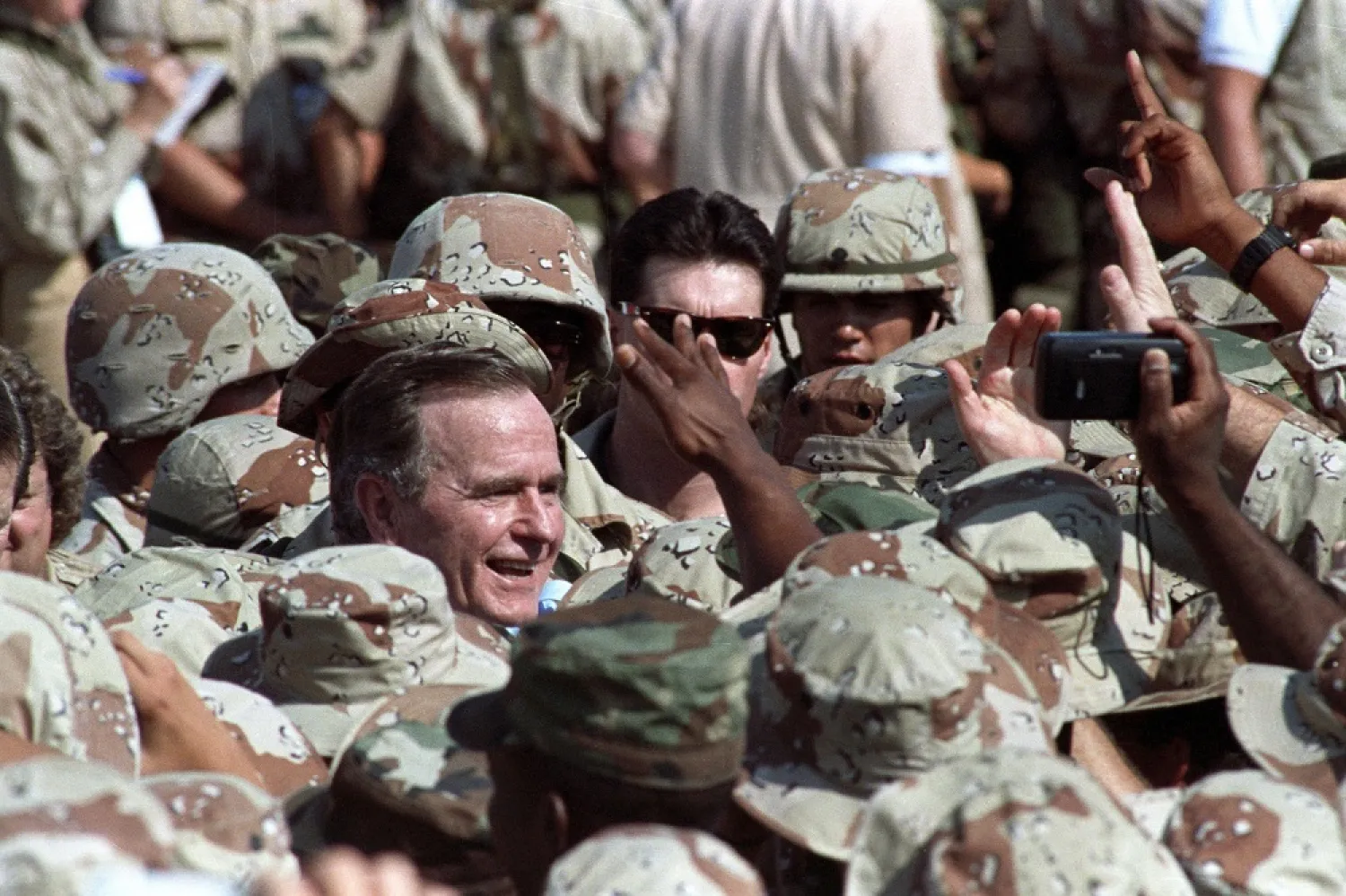Gulf officials stressed the need for exerting international efforts to put an end to Iran’s meddling in the region and protect the energy market and global economy.
They added that the Saudi-American alliance secures the region and preserves its stability.
Saudi Arabia had announced on Friday that Custodian of the Two Holy Mosques King Salman bin Abdulaziz had agreed for the Kingdom to host US troops to boost regional security.
"Based on mutual cooperation between Saudi Arabia and the United States of America, and their desire to enhance everything that could preserve the security of the region and its stability... King Salman gave his approval to host American forces," a Defense Ministry spokesman was quoted by Saudi state news agency SPA as saying.
Gulf Cooperation Council Assistant Secretary General for Political Affairs and Negotiations Dr. Abdulaziz Hamad al-Owaishek told Asharq Al-Awsat that it was “clear that Iran is trying to drag the region towards war after the American sanctions began to yield their expected results.”
He cited Tehran’s detention in recent days of oil tankers in flagrant violation of international law since the vessels were traveling in international waters or the territorial waters of neighboring countries.
Despite these provocations, American and Gulf responses were “balanced” and countries have avoided getting embroiled in open war with Iran, he remarked.
They instead opted to focus on defense and preserving the security and stability of the region, Owaishek said.
Saudi Shura Council member Dr. Fayez al-Shahri told Asharq Al-Awsat that Iran seeks to spread chaos and is resorting to the Tanker War phase of the 1980s.
The tactic of attacking and capturing vessels has been adopted by Iran since its 1979 revolution, he noted.
In contrast, he said that Saudi Arabia, which oversees the world’s most vital marine shipping routes, has never resorted to jeopardizing them and has always sought to protect them.
The alliances and cooperation struck up by the Kingdom always favor the security and stability of the region, he stressed.
For example, the Saudi-American alliance helped save Kuwait from the Iraqi occupation during the rule of Saddam Hussein, Shahri said.









